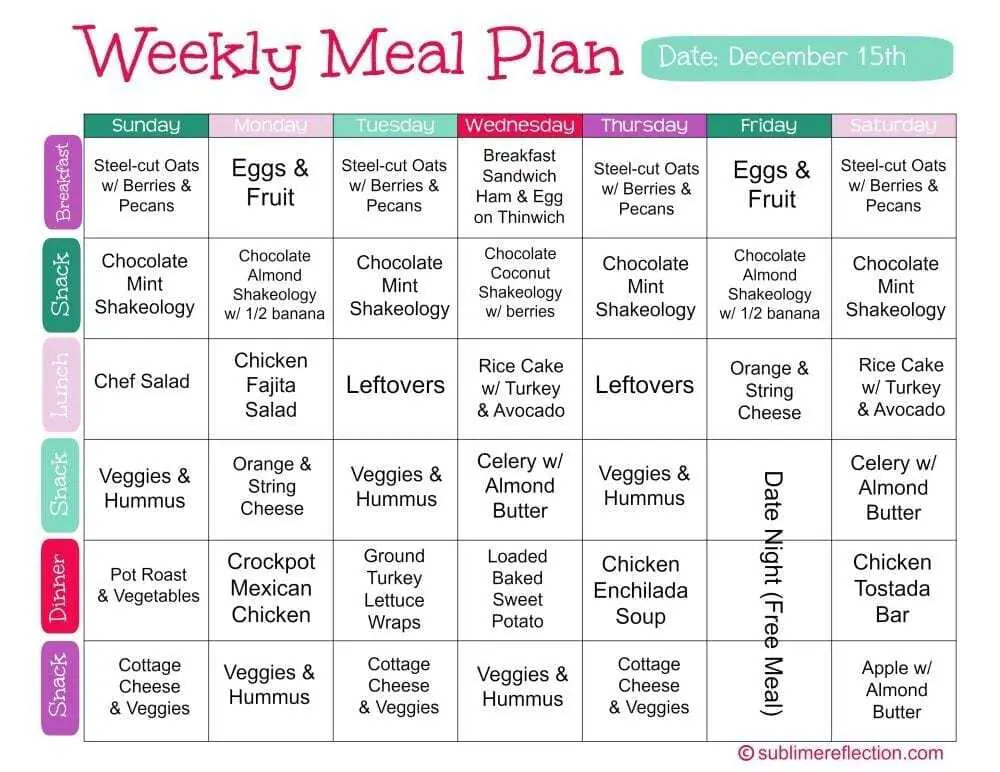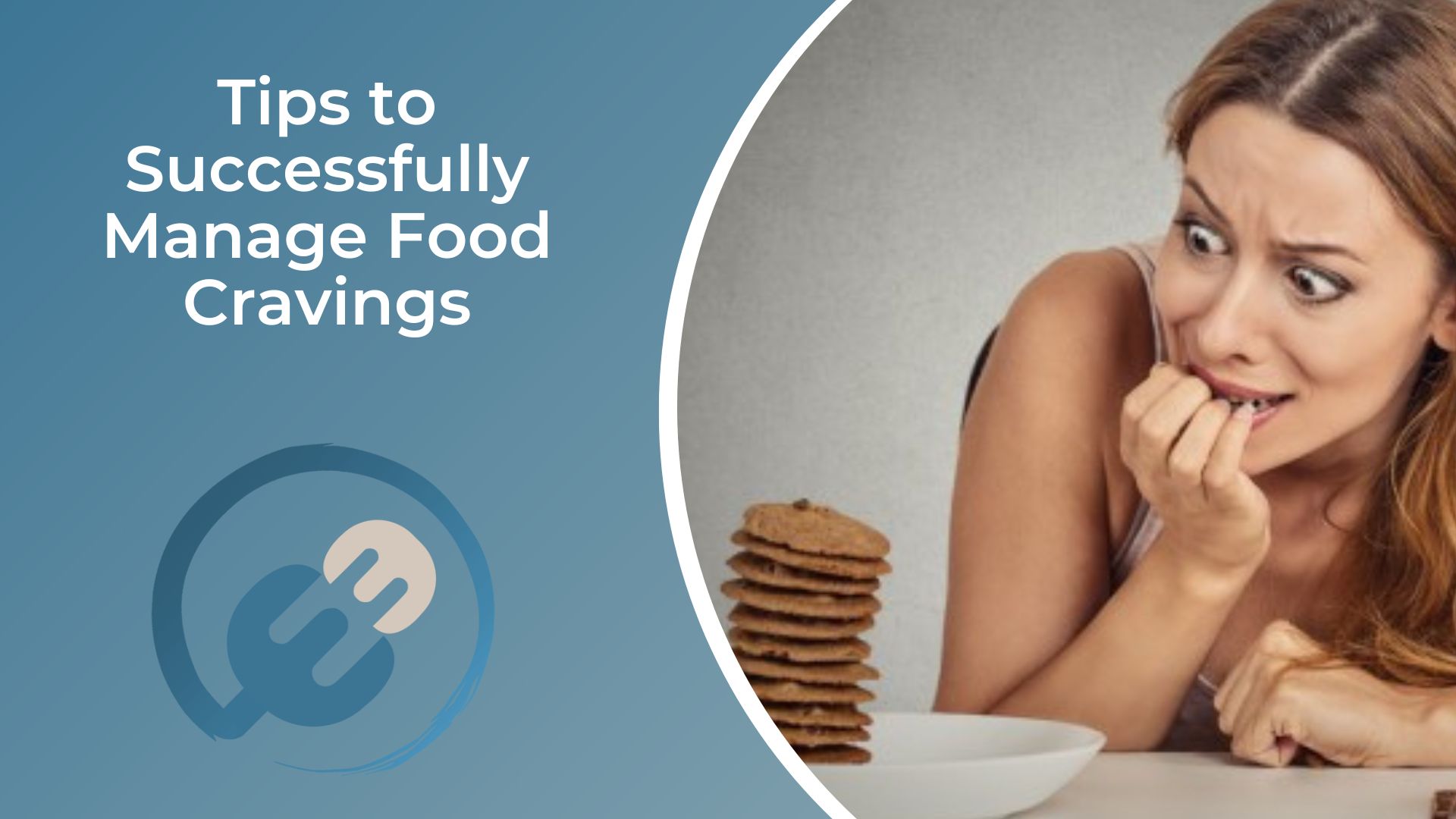Food cravings can be a challenge for anyone trying to maintain a healthy diet. Whether it’s a sudden desire for something sweet, salty, or fatty, giving in to these desires can quickly undo all your hard work.
However, there are a few approaches you can use to manage your cravings and stay on track with your goals.
Here are 10 tips to help you manage your food cravings easily and painlessly.
1. Drink Plenty of Water

Drinking water is essential for staying hydrated, but it can also help reduce food cravings. Often, when we feel hungry, it’s actually our body telling us we’re parched.
By drinking water, you can help alleviate this feeling and reduce your desire for unhealthy foods. Additionally, drinking water can help you feel full, which leads to fewer cravings.
Strive to drink at least eight to nine cups of water per day to stay hydrated and feel full longer.
2. Plan Your Meals and Snacks

When you have a clear plan for what you’ll eat throughout the day, you’re less likely to experience sudden cravings that can lead to unhealthy choices.
Make sure to include the right amount of healthy proteins and carbohydrates to keep you full and satisfied.
Additionally, planning your meals and snacks can help you dodge the temptation of unhealthy meals when you’re out and about.
3. Keep Healthy Snacks on Hand
We know snacking is closely tied to many occasions, like relaxing and enjoying your free time once you allocate your college work to this essay writing service. But is it really that harmless?
When you’re craving a snack, it’s easy to reach for something unhealthy like chips or candy. However, keeping healthy snacks on hand can help you make better choices. Some sound options are fruit, vegetables with hummus, or different types of nuts.
These snacks are not only healthy but also provide vital nutrients your body requires to stay healthy and happy.
Additionally, having healthy snacks readily available can help you avoid the temptation of unhealthy options when you’re hungry and on the go.
4. Exercise Regularly
Exercise is crucial in maintaining a healthy lifestyle, but it can also help reduce food cravings. It releases hormones called endorphins which reduce stress and enhance your mood.
Stress is a common trigger for food cravings, so by reducing your stress levels through exercise, you can help manage your cravings.
Additionally, exercise can help regulate your appetite hormones, making you less likely to feel intense cravings.
5. Get Enough Sleep
Getting enough sleep can also manage food cravings – but how? When you don’t sleep sufficiently, your body produces much more ghrelin, a hormone that stimulates hunger.
This can lead to a boosted appetite for unhealthy foods. By getting enough sleep, you can help keep your hormones in harmony and reduce your cravings. Getting enough sleep can help lower overall cortisol levels and improve your mood, making you less likely to turn to food for comfort.
To top that off, according to Best Cosmetic Dentistry Tallahassee, getting enough sleep can also lower your risk of periodontal diseases. So, what’s not to love about sleeping?
6. Practice Mindful Eating

Mindful eating is simply paying attention to the senses and emotions associated with eating. By being more conscious of what you’re eating and how you’re feeling, you can better manage your cravings. When you experience a food craving, take a moment to pause and consider why you’re feeling that way. Are you truly starving, or are you feeling overwhelmed or emotional?
By practicing this technique, you can begin to understand how to distinguish between true hunger and other triggers for food cravings. Additionally, practicing mindful eating can help you savor your food and improve your overall eating habits.
7. Don’t Skip Meals
Skipping meals is a typical mistake many people make when attempting to lose weight or manage their food cravings. However, skipping meals can actually have the opposite effect, leading to increased hunger and more intense cravings. Skipping a meal can lead to a drop in blood sugar and an upsurge in hunger hormones. This can cause you to feel ravenous and crave high-calorie, high-sugar foods.
When planning your meals, make sure to include a balance of healthy fats, protein, and complex carbohydrates. This can help keep you feeling full for extended periods of time, reducing the likelihood of cravings. Good sources of protein include eggs, lean meats, fish, and plant-based sources such as beans, lentils, and tofu. Healthy fats can be found in foods like avocado, nuts, and seeds, while complex carbohydrates can be found in whole grains, vegetables, and fruits.
8. Find Healthy Substitutes
If you’re craving a specific food, try finding a healthier substitute. For example, if you desire something sweet, consider indulging in a piece of fruit instead of a candy bar. If you’re craving something crunchy, try eating carrot sticks instead of chips.
Finding healthy substitutes can help you fulfill your cravings while maintaining a healthy approach to dieting. Additionally, by finding healthier options, you can train your brain to crave healthy foods instead of unhealthy ones.
9. Manage Stress Levels

Stress is a common trigger for food cravings, as many people turn to food for comfort during times of stress. Therefore, finding ways to manage stress can help reduce your cravings. Some strategies to try include meditation, deep breathing, and yoga. By managing your stress levels, you can reduce the likelihood of turning to food for comfort and stay on track with your goals.
10. Don’t Restrict Yourself Too Much
While it’s important to maintain a healthy diet, it’s also essential to enjoy the foods you love in moderation. Limiting yourself excessively can lead to intense cravings and, eventually, binge eating. Instead of completely giving up on your favorite foods, try to find healthier ways to enjoy them.
Wrapping Up
We hope these tips are helpful when trying to manage your food cravings and maintain a healthy diet. However, it’s important to remember that everyone’s journey is unique, and what works for you may not work for another person.
It’s important to remember that occasional indulgences are okay. Trying to maintain a perfect diet all the time can be unsustainable and can lead to feelings of guilt and shame when you do indulge. Therefore, it’s essential to be gentle with yourself and to remember that healthy eating is a journey, not a destination.
Managing food cravings can be a challenge, but with the right strategies, you can stay on track with your goals and maintain a healthy diet. By drinking plenty of water, planning your meals and snacks, keeping healthy snacks on hand, and exercising regularly, you can successfully manage your cravings and maintain a healthy lifestyle.



